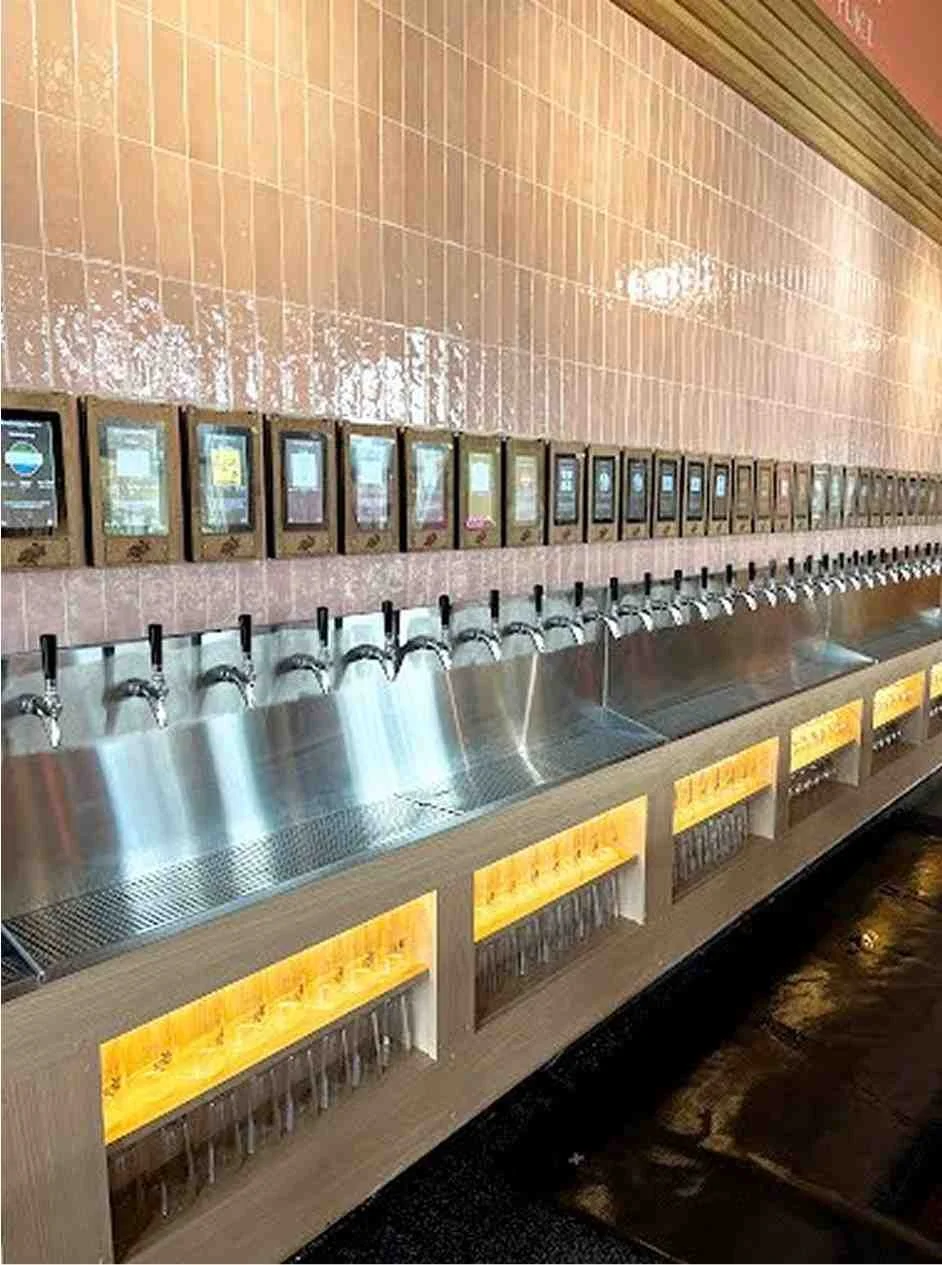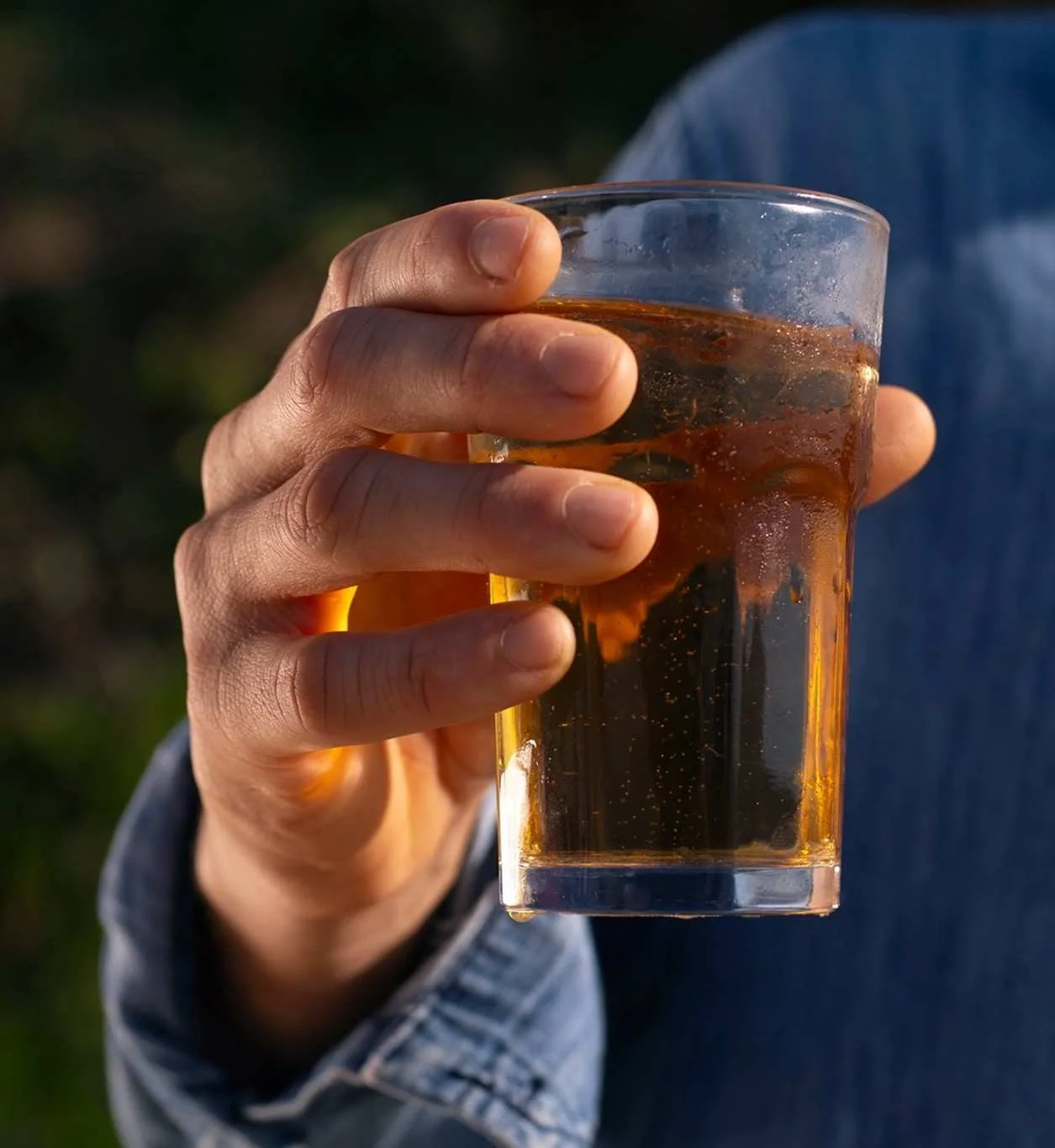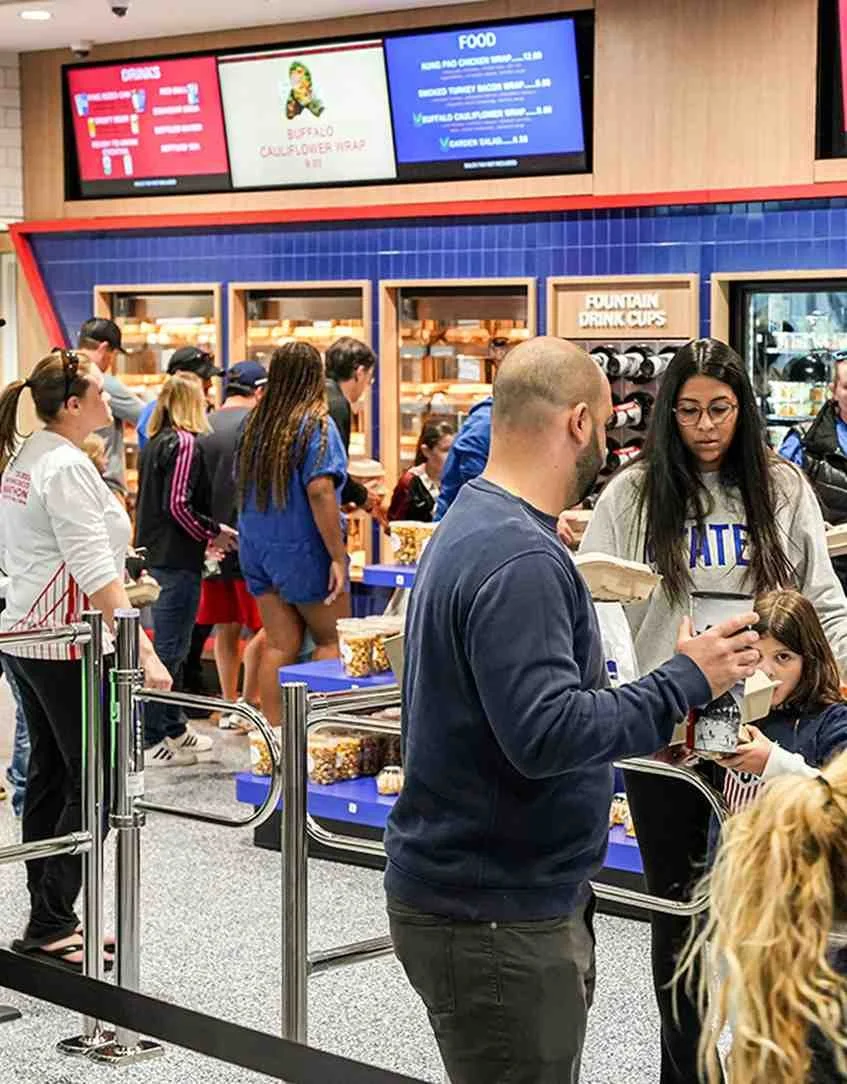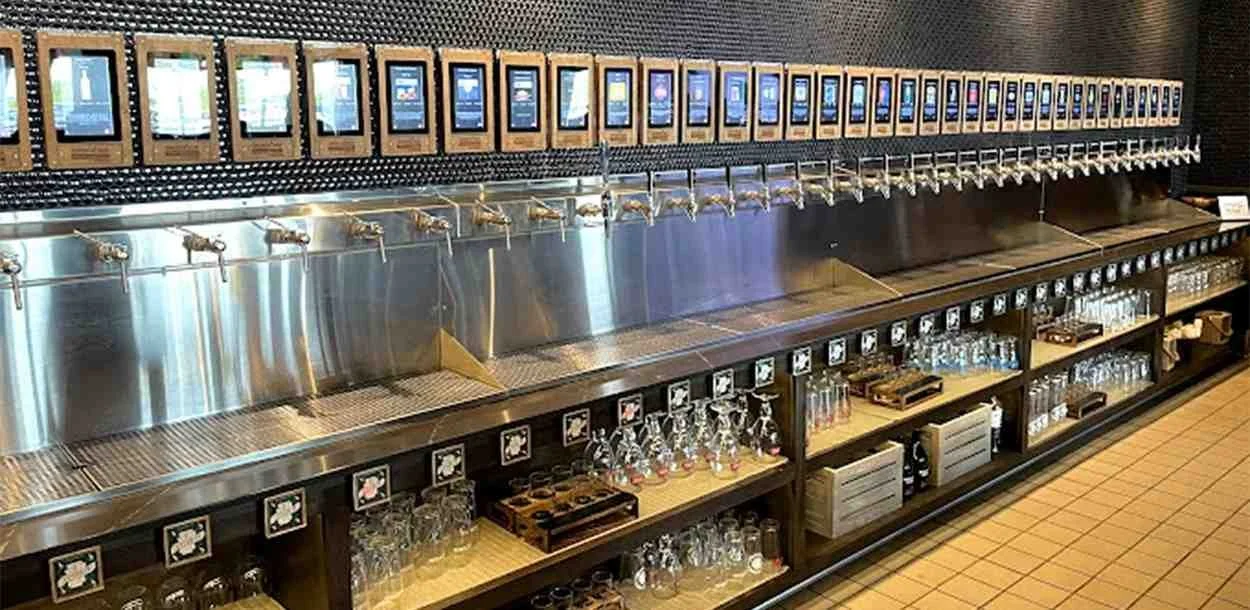Safe & Sustainable: How Self-Serve Draft Systems Support Eco Friendly Venues
Sustainability is no longer a trend—it’s a mandate for the hospitality industry. As consumers grow increasingly aware of their environmental impact, they expect the venues they support to share their values. From reducing single-use plastics to embracing energy-efficient practices, eco-conscious operations have become a key differentiator for restaurants, bars, and event spaces.
At the same time, operators are under pressure to maintain profitability, improve efficiency, and deliver seamless customer experiences. This has led to a growing demand for solutions that are not only sustainable but also smart and scalable. In response, GS Draft offers self-serve draft systems that align cutting-edge technology with sustainable practices.
By combining reduced waste, streamlined operations, and hygienic beverage service, GS Draft’s self-serve systems offer a practical, forward-thinking solution for venues aiming to meet both their sustainability goals and the expectations of today’s environmentally conscious guests.
What Are Self-Serve Draft Systems?
Self-serve draft systems are automated beverage dispensing stations that allow customers to pour their drinks directly from taps. These systems typically use RFID cards, wristbands, or mobile apps to track consumption and control access, giving guests the freedom to sample and pour drinks at their own pace. With integrated flow meters and digital displays, each pour is measured precisely, helping venues manage inventory and minimize waste.
Unlike traditional bar service, which requires a bartender to take orders, mix drinks, and manage tabs, self-serve draft systems empower guests to serve themselves, reducing wait times and labor needs. This shift not only streamlines operations but also enhances the customer experience by putting choice and control directly in the hands of the guest.
Self-serve systems are increasingly found in a variety of hospitality settings, including:
- Taprooms and breweries – allowing guests to explore multiple beers without waiting at the bar
- Food halls and fast-casual restaurants – offering a wide range of beverage options in high-traffic environments
- Event spaces and entertainment venues – providing convenient drink access during concerts, festivals, and private functions
- Hotels and resorts – enhancing amenities with on-demand beverage access for guests
By simplifying beverage service and offering real-time data tracking, self-serve draft systems support more flexible, scalable, and sustainable operations across a wide range of venue types.

Reducing Waste: A Greener Pour

One of the most immediate environmental benefits of self-serve draft systems is the significant reduction in packaging waste. By serving beverages directly from kegs, these systems eliminate the need for single-use bottles and cans, which often end up in landfills or require energy-intensive recycling processes. This not only cuts down on waste but also reduces the carbon footprint associated with manufacturing, transporting, and disposing of packaged drinks.
Another major advantage is the precision of each pour. Self-serve systems use digital flow meters to dispense exact ounces, which helps eliminate overpours, spillage, and free sampling that often go unaccounted for in traditional bar setups. With less product lost, venues can reduce beverage waste and improve inventory control.
To further support sustainable practices, many self-serve venues encourage the use of reusable glassware instead of disposable cups. This simple shift promotes long-term eco-conscious habits among patrons and helps reduce the volume of plastic and paper waste generated during service.
Key sustainability benefits include:
- No bottles or cans = fewer materials in circulation and less trash
- Measured pours = reduced waste and consistent portion control
- Reusable glassware = less reliance on single-use plastics or paper cups
Altogether, these features contribute to a more environmentally responsible beverage program that aligns with both business goals and guest values.
Energy and Resource Efficiency
Self-serve draft systems are not just about convenience—they also play a critical role in conserving energy and natural resources. One of the most impactful features is their use of centralized cooling systems. Unlike traditional bars where multiple fridges or coolers are needed to store bottled beverages, self-serve setups use a single, efficient refrigeration unit to keep multiple kegs chilled. This significantly lowers electricity consumption and reduces the strain on HVAC systems, especially in high-volume venues.
Another key benefit is the use of bulk kegs, which dramatically cut down on the need for frequent beverage deliveries. A single keg can hold the equivalent of dozens of bottles or cans, meaning fewer trips from suppliers and lower fuel consumption. This reduction in transport emissions helps decrease the overall carbon footprint of a venue’s beverage program.
Modern self-serve systems also integrate smart technology that allows operators to monitor energy usage, beverage flow, and system performance in real time. This data can be used to:
Adjust temperature settings for optimal energy savings
Detect leaks or inefficiencies early to prevent resource waste
Track usage patterns to ensure systems only run when needed
Together, these efficiencies make self-serve draft systems a powerful tool for venues aiming to reduce their environmental impact while keeping operating costs under control.
Supporting Local and Sustainable Beverages
Self-serve draft systems offer venues the flexibility to promote locally sourced and sustainably produced beverages—a win for the environment and the community. Instead of relying solely on mass-distributed, packaged drinks, venues can feature on-tap options like craft beer, organic kombucha, sustainable wines, and even non-alcoholic offerings from regional producers. These options not only align with eco-conscious values but also provide guests with a unique, local tasting experience they can’t get elsewhere.
By prioritizing local and regional products, venues significantly reduce the carbon emissions associated with long-distance transportation and excessive packaging. Shipping cases of bottles across the country requires more fuel, more packaging materials, and more refrigeration throughout the supply chain. Kegged beverages from nearby producers are more efficient to transport and store, lowering the overall environmental footprint.
Self-serve systems also make it easy for venues to rotate in new seasonal or eco-conscious offerings. With digital menus and quick-swap kegs, operators can highlight sustainable brands and limited-edition brews without the waste and hassle of printed materials or repackaging.
Benefits include:
- Support for local producers who prioritize sustainable practices
- Lower transportation emissions thanks to proximity and bulk delivery
- Flexible, rotating taps to spotlight eco-friendly, seasonal, or low-impact beverages
This approach not only strengthens a venue’s sustainability strategy but also builds deeper connections with guests who value transparency, authenticity, and environmental stewardship.

Enhanced Safety and Hygiene
Self-serve draft systems are designed with public health and safety in mind, offering a cleaner, more controlled alternative to traditional beverage service. Many systems feature touchless or minimal-touch technology—such as RFID cards, mobile apps, or motion-activated taps—that reduce contact points and limit the spread of germs. This is especially valuable in high-traffic venues or during times when heightened sanitation is a priority.
In addition to physical safety, these systems incorporate digital features that enhance compliance and customer protection. Digital age verification ensures that only eligible guests can access alcoholic beverages, helping venues meet legal requirements without relying solely on staff. Contactless payment options add another layer of convenience and hygiene, allowing guests to pour and pay without handling cash or shared credit card terminals.
Self-serve systems also support strict sanitation protocols. From automated cleaning cycles to tamper-proof hardware, these systems are built to maintain cleanliness and ensure safe beverage dispensing.
Key safety and hygiene features include:
Touchless or low-contact pouring to reduce transmission risks
Digital ID checks for age verification and compliance
Contactless payment for a seamless, hygienic transaction
Controlled pour limits to prevent overconsumption and promote responsibility
Easy-to-clean equipment with built-in sanitation support
By integrating these technologies, self-serve draft systems provide peace of mind to both venue operators and guests, delivering a safer, more modern beverage experience.
Lower Operational Footprint for Venues

Self-serve draft systems not only support sustainability on the customer-facing side—they also help reduce the overall operational footprint for venue owners. One of the most immediate advantages is the reduced need for staff to manage beverage service. With guests pouring their drinks, venues can operate more efficiently with fewer employees, which translates to lower labor costs and fewer emissions associated with commuting, uniforms, and training.
Inventory management is also simplified. Because beverages are stored and dispensed from kegs, there’s less risk of spoilage, breakage, or product expiration compared to bottled or canned drinks. The digital tracking systems built into most self-serve setups give operators real-time visibility into pour volumes, helping reduce overordering and ensuring products are restocked only when necessary.
Additionally, cleaning and maintenance routines are more efficient. These systems are designed with modular components and sanitation features that make them easier to clean than traditional bar setups, which often require constant attention and manual upkeep.
Operational advantages include:
- Reduced staffing needs = lower labor costs and smaller environmental footprint
- Streamlined inventory with less product waste and spoilage
- Digital monitoring for smarter ordering and restocking
- Simplified cleaning protocols that save time, water, and resources
Overall, self-serve draft systems enable venues to run smarter, leaner, and more sustainably, supporting both bottom-line efficiency and long-term environmental responsibility.
Educating Eco-Conscious Customers
Today’s guests aren’t just looking for good drinks—they’re looking for brands that reflect their values. Self-serve draft systems give eco-friendly venues the opportunity to educate and engage their customers around sustainability efforts in meaningful ways. By displaying real-time sustainability metrics, such as the number of bottles and cans saved or the amount of CO2 emissions reduced, venues can turn everyday pours into tangible proof of environmental impact. These insights can be displayed on digital screens, apps, or even social media to keep sustainability front and center.
Interactive digital menus also play a key role in customer education. These platforms can highlight locally sourced or sustainably produced beverages, provide background on the producers, and even note the environmental benefits of choosing kegged over bottled options. This transparency not only builds trust but also encourages guests to make greener choices.
Promoting the self-serve experience itself as a sustainability feature helps reinforce your venue’s brand identity. When customers understand that the way they pour their drink contributes to a larger eco-conscious mission, it deepens their connection to your business and sets you apart from competitors.
Ways to engage eco-conscious guests include:
Displaying live impact stats (e.g., cups saved, waste avoided, emissions reduced)
Highlighting sustainable options on digital tap menus with icons or tags
Sharing your sustainability story through signage, staff messaging, and branded content
Positioning self-serve as a conscious choice that supports efficiency and the environment
When education and transparency are part of the customer journey, self-serve draft systems become more than just a convenience—they become a powerful expression of your venue’s values.
GS Draft’s self-serve draft systems blend sustainability with innovation, offering venues a smarter way to reduce waste, conserve energy, and enhance guest safety. By replacing single-use packaging with keg service, enabling precise pours, and integrating digital tools for hygiene and efficiency, GS Draft supports greener, more streamlined operations. As technology continues to reshape hospitality, GS Draft’s self-serve systems stand out as a practical, long-term solution for eco-conscious venues—empowering operators to lower their environmental impact while meeting the expectations of today’s sustainability-minded guests.
Partner with GS Draft to Build a Greener Beverage Program
At GS Draft System Solutions, we’re committed to sustainability without compromising performance.
We specialize in designing, installing, and maintaining innovative self-serve beer tap systems that help eco-conscious venues reduce waste, lower energy use, and boost operational efficiency. Let us help you create a greener, smarter beverage experience that meets the demands of today’s environmentally minded guests.
From eco-conscious design to long-term support, we deliver sustainable self-serve beer tap solutions tailored to your venue. Our systems are built to reduce waste, conserve resources, and support greener operations—without sacrificing quality or customer experience. Let us help you serve smarter and more sustainably.
Contact us at (949) 421-3882 or email sales@gsdraft.com to learn more about our sustainable self-serve tap system installations. Let’s build a smarter, more eco-conscious experience for your guests.
